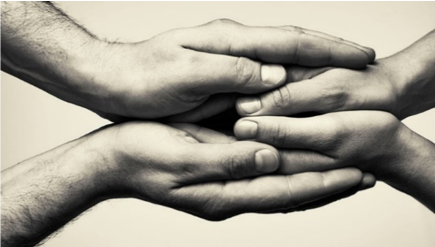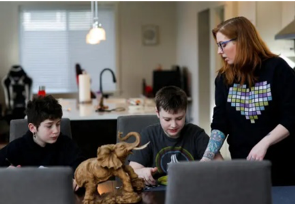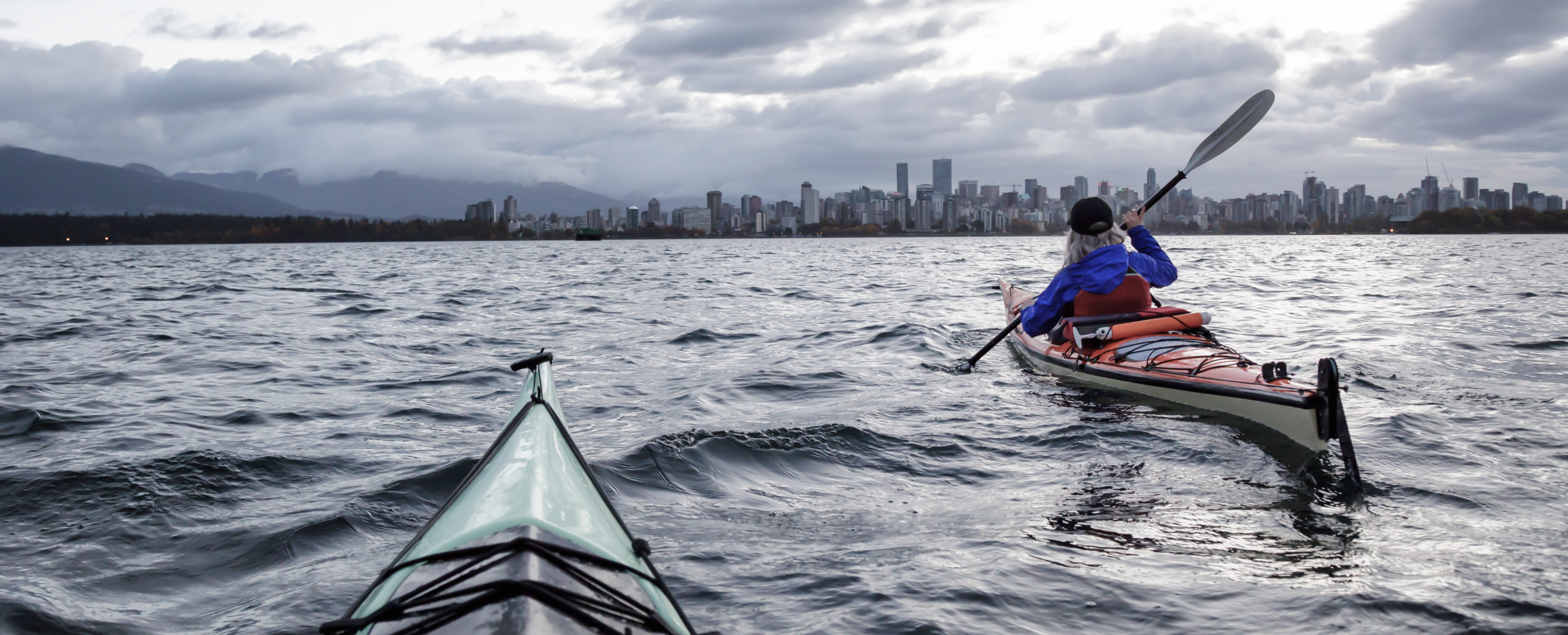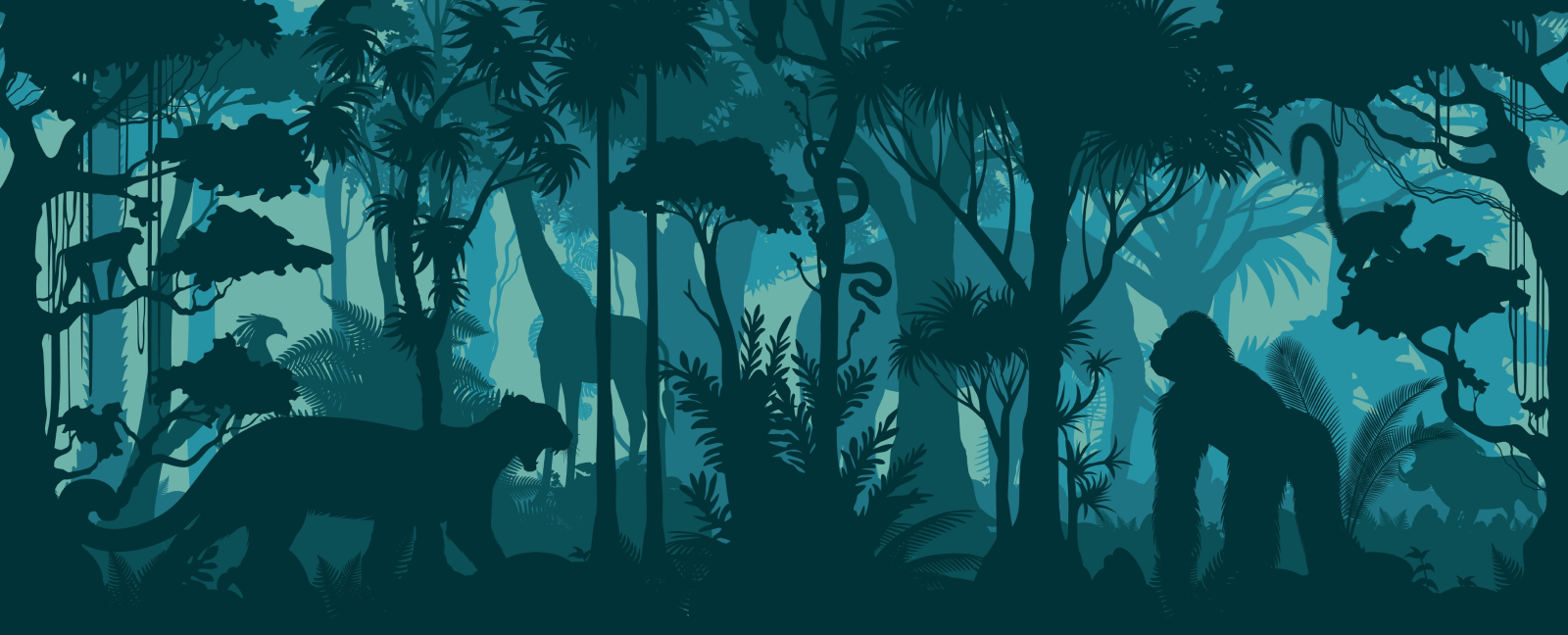
Contact! A Different Take on the Coronavirus Pandemic
Humanity is facing a dangerous threat as the Coronavirus (COVID-19) quickly morphed from an outbreak, to an epidemic, to a global pandemic that will infect millions, if not billions. Besides being invisible and extremely intelligent at the art of survival, the virus managed to insert itself where it matters to us most: The point of contact.
Over thousands of years, humanity has always depended on the power of contact to progress and transform itself. What we have and enjoy today in terms of human and global civilization is the result of human contact with each other and with our surroundings. Contact for humans means everything and just like me, I am sure you are wondering what in the world is going on, why are we in this mess, and when will it go away?

While self-secluding in my little pod, waiting and hoping for this global pandemic to pass by so I can return to living my normal life, I have had the chance to reflect, like so many fellow human beings, on our purpose of living and what really counts for me and what doesn’t. I am also asking myself how our life will look like once we return to our daily “routine”. As of today, we are over the two weeks quarantine period many countries are targeting to flatten the curve of the spread of the virus and I wonder, how will my life change?
I want to be careful not to sound as if I know how to pry ourselves out of this situation. What we are experiencing here is new to all of us on all fronts, and with every passing day, we are trying to learn how to confront this “invisible enemy”. However, this enemy is forcing us “humans”, by they way it has so smartly lodged itself, to confront a new reality that we need to be very cognizant of. This new reality can have a profound and irreversible impact on how we and future generations live and behave. One thing for sure, the measures we are applying to contain and defeat the virus are vital to our human existence. If we don’t change our habits and behaviors, this virus will only spread further, last longer, and cause more harm and disruption than it has already done.
History is full of tragic and catastrophic pandemics. Many of them involved tough quarantining and isolation measures. Despite all of that, people managed to emerge stronger and resume physical contact with each other. What hastened the re-establishment of this physical contact was that technology, as we know it today, did not exist during those pandemics. As a matter of fact, we did what we had to do to survive by reaching out, meeting face to face, shaking hands, exchanging and sharing information and material, constructing and rebuilding things, and standing shoulder to shoulder. We did what we humans have grown accustomed to over thousands of years to support each other like visiting each other, caring for each other, holding each other, sharing stories together, consoling one another, and easing up the burden a bit with a pat on the back, a hug, or a kiss.
When it comes to today’s lockdowns and quarantining efforts, whether voluntary or compulsory, there is an added dimension we need to carefully consider, and which we did not experience previously as much. I am referring to the mental isolation we have been undergoing for over a decade with our addiction to social media, smart phones, and all the supporting technologies that go with it. In addition to the physical aspect of lockdowns, we need to concern ourselves with the mental isolation we got accustomed to as well, and how the combination of both could lead to new social norms and behaviors where we forego the importance of human contact. With social technologies rapidly evolving, we could unknowingly be supporting, propagating, and endorsing a behavior in social distancing that could eventually extend beyond the theme of self-protection and preservation initiated by an invisible enemy we cannot see or touch.
Social media and e-commerce technologies have revolutionized how we interact, and in many instances to the better. They have certainly enhanced our response to critical situations on all fronts, especially in the medical field. However, my concerns go beyond the current pandemic and more toward the next one: How will things change between what we are experiencing today and the next health crisis? How will we use technology to confront the next invisible enemy should it decide to pay us another unwelcomed visit?

So far, we have managed to stay home and wait out this pandemic with the hope that our efforts will eventually pay off in defeating the virus. Thanks to technological advancements in videoconferencing, remote access, file sharing, and much more, we have been able to perform our jobs, deliver on our tasks, and complete projects without leaving the comfort of our homes. Just as well, students of all ages, have been able to fulfill their academic duties from home with some very encouraging and surprising results.
Unfortunately, certain professions do not have the luxury of dealing with this deadly virus remotely. Instead, they are heroically fighting at the front lines by putting their lives at risk every second they work with a patient, and on many occasions, with very limited resources. I am talking about the medical professionals (doctors and nurses and first responders) who are sacrificing their lives for us to live. The irony is that in traditional wars, soldiers are normally the ones at the front line while medical staff are working in the background saving lives. In this war, the medical cadre are at the frontline saving lives while soldiers are sent in later to clean up the mess. This war is different!
For most of us, we find it difficult to deal with social distancing and the paranoia accompanying it. We feel frustrated for not being able to visit a friend or fly over to see a family member. We also worry that we might inadvertently transmit or spread the virus further and unintentionally cause sickness or harm to others around us, especially our beloved elderly who have been the most vulnerable this time around.
Technology has helped to a great extent. However, what happens if we cannot be physically with others, notably when they need us most? Who or what will fill the void? Will we get acclimated to new behaviors where social distancing is the norm? How will we re-establish normal human contact once we conquer this Coronavirus? What will the mechanism be?
When we are threatened, we realize how precious our lives are, and when the threat is unknown, we feel vulnerable, weak and exposed. Our history is rife with incidents where the presence of a threat led to dreadful and incomprehensible wars and cost millions of lives with horrifying outcomes and unimaginable amounts of destruction. At the end, one side won while the other surrendered, and we moved on to fix things up. However, rarely have we seen a threat that has united all of humanity in the fashion we are seeing with this virus. It reminds me of movies like “Independence Day” and “Edge of Tomorrow” where alien invaders try to conquer Earth and the human species unite to win Earth and our freedom back. Inadvertently, today we are all playing a role in preserving our humanity with a key difference: This war is real. None of the fictitious villainous invaders we see and abhor in the movies or read about in novels managed to wedge themselves among us as the Coronavirus has done. To make matters worse, we could eventually pay the dear price of what humanity is all about: The ability to physically stay in contact with one other.


We are living in an age where technology is bringing us together and simultaneously driving us apart. Despite the abundance of smart phones, social media platforms, games, virtual realities, tools to replicate us in other dimensions, and everything else you can imagine to keep us individually or group-wise entertained and connected, we are suffering unprecedented levels of loneliness, isolation and anxiety. Social scientists, psychologists, medical professionals, and other researchers attribute this to the lack of human and physical contact among us. This is based on countless studies they have done.
Regrettably, there will always be companies and institutions out there that will feed on our fear of the Coronavirus or the likes of it and will use these incidents to drive profit or exert greater control. In addition, these companies will widen the physical distance between us, to the extent that we might end up living in our own pods one day without much physical contact or interaction whether there is a pandemic or not.
This really worries me. We will win the battle against the Coronavirus. However, I question how our lives will be transformed in the coming few years and decades as more technology is introduced. In recent weeks, we have put many technologies to the test and on a massive scale, and they performed brilliantly as I mentioned before. Other advanced technologies, such as robotics, are also ready to enter the market on a wider scale, and the Coronavirus pandemic is the perfect window to justify their introduction.
When the next pandemic occurs, some will justify the use of robots to fill in for doctors, nurses and first responders. While this will save precious lives, it will also guarantee a full human social distancing or social isolation experience. Eventually, we might start using robotics to fight new invisible enemies to protect the human species. As a result, robots might start roaming the streets, doing our jobs, policing our skies, all while we stay at home feeling falsely safe and secure from invisible enemies. During this time, we will reach out to each other using the same technologies that are keeping us physically apart.
The human species is extremely resilient and capable. We did not evolve to where we are today if it were not for the physical contact that has been so essential for our own existence. Yet, we seem adamant on introducing technologies that keep us away from touching each other. This will only make us weaker and more vulnerable against every invisible enemy we fight through the technological proxies we create.
Our immune system is a miracle that developed over a very long time. This couldn’t have happened without the physical contact that we enjoy. In my opinion, any technology that eliminates human contact from the equation or tries to replace it under the guise of self-preservation, protection, ease of doing business, or what have you, should be seriously reviewed and the real motives addressed, particularly if the human element is not at the heart of it. Anything that does not make our humanity a priority, and our human proximity better, should be scrutinized and redesigned to promote a stronger and more fulfilling human experience.
Coronavirus has forced itself upon us. How we move forward is up to us as humans to decide, and not for the virus or for technology to dictate. We are at an important crossroads here: We could either usher in a new era of great and unprecedented human experience, or an era where humans are no longer at the center of progress on planet Earth.

Scientists will find a vaccine for this virus. Hopefully, this will happen soon. A vaccine will help us fight this invisible enemy and more importantly, assist us to reclaim back our normal human life and retain our ability to reach out to one another without fear of infection or death. On the other hand, the virus will survive and might use other vessels, not just humans, to spread itself around. However, a vaccine alone is not a cure, and neither is technology. We need to look deeply at how our actions have accelerated the transmission of the virus. We must increase the urgency behind numerous vital and burning global and existential issues which, until now, we have disregarded. We should act more like custodians of life on Earth rather than plunderers of its riches and abundant resources. In addition, we must preserve what has made us so special as a species and has distinguished us over thousands of years; i.e. the ability to stay in contact with each other and our surroundings for as long as we survive on the face of this Earth.
Related Articles

Conquering the Tempest
Leadership and resilience, often dormant in individuals, can emerge as…

Purpose-driven Leaders: Leadership that Builds and Influences Changes.
Leadership is not merely making decisions or managing jobs; it is about…

Inspiring Teams: The Impact of Well-Defined Objectives
Throughout my career as a Management Consultant, I've had the opportunity…

Another Forest Leadership Lesson
Once upon a time, in a lush forest in a faraway land, animals of all kinds…
